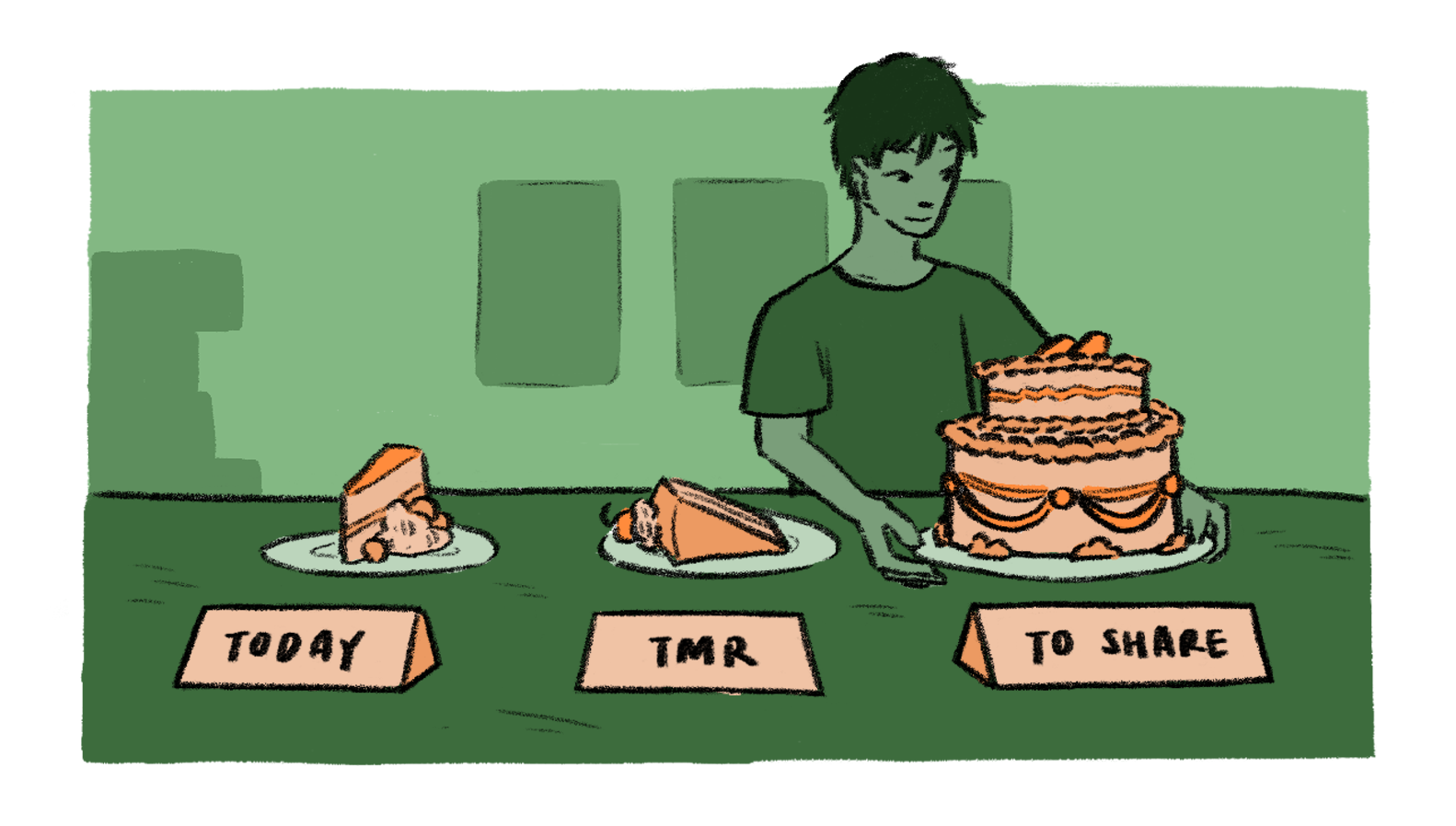Recently, when I was chatting with a friend over dinner, he asked, “What do you do when you don’t have enough for the month?”
I shrugged, and almost instantly said, “I don’t know. I guess God will provide.”
That was something that I could never imagine myself saying even just a few years back. I was slightly shocked how easily and lightheartedly I said it, especially since I’m not earning a lot working in a non-profit organisation.
Growing up, I wouldn’t identify myself as someone who is generous. My family didn’t really struggle financially, but I grew up in a family culture where we wouldn’t spend excessively.
My parents had always taught me to save as much as I could to prepare for rainy days.
While saving is definitely a good habit, growing up with that mindset meant I often felt stingy and also guilty whenever I spent money on myself.
It was only after I entered my twenties that I realised this was an unhealthy mindset towards money, and was not how God has called me to steward my money.

Don’t get me wrong, the Bible certainly does encourage us to save and grow our money (Proverbs 13:11). But we are also called to keep our lives free from the love of money (Hebrews 13:5) and to be generous to the poor (Proverbs 22:9).
Simply put, we are called to save diligently and not spend hastily. But that doesn’t mean we are to hoard all the money for ourselves – one of the reasons we have money is so that we can build the Kingdom and bless others.
Learning to give and be generous was a journey that started after I recognised how much I have received in my life, both from God and from other people.
That doesn’t mean that giving is easy. Generosity is a choice and a matter of obedience, and is one way of placing others before ourselves.

We might think that if only we had more, it would be much easier to give. But it’s not that simple. When we have more money, we will naturally want to spend more.
Holiday trips, the newest phones and gadgets, luxurious meals… We can get all of that stuff but we will still never come to a point where we are satisfied (Ecclesiastes 5:10) unless we get our hearts right.
And even if we do serve others with the excess money that we have, would that be out of love and generosity – or pride and pity?
If we do not address the covetousness and selfishness in our hearts, we can never truly be generous. There will always be a scarcity mindset and we will always want to hoard more for ourselves as money will retain its hold over us.
So, as a young person who has just entered the workforce recently, I’d like to share certain tips and habits that I found helpful in learning to steward my money and practise generosity.
1. Know your tendencies
Before we rush into thinking about how we can give, we need to first examine how we usually spend our money, and what that says about our hearts.
Do you tend to be tightfisted and stingy, saving all your money and not giving a cent to anything beyond yourself? Do you feel guilty to even spend on yourself or your loved ones? Perhaps there is a scarcity mindset that you need to address.
Or do you tend to spend quite hastily and buy whatever you want as long as you can afford to? Have you been in situations where you are unable to bless someone because you have already overspent? Perhaps you need to learn to be content with what you have and to be wise in how you spend.

Whichever the case, recognising our tendencies and usual struggles often reveals a deeper issue in our hearts that we need to work on. Practically, it also pushes us to plan our finances more intentionally and wisely.
Instead of spending or saving thoughtlessly, we must put in careful consideration over our finances so that we would have the capacity to give and bless others.
2. Plan your finances
How can we be generous and prudent (especially when we don’t have a lot)? Planning is crucial.
You can start with a certain percentage of your allowance or income every month. Set that aside as “Love Funds”, and make sure that amount goes to blessing someone.
If we struggle to give even when it’s not a lot, it would be harder to give a bigger amount when we have more in the future.
It’s not about the amount, so it doesn’t have to be a lot. The key is to cultivate the discipline of planning and giving. If we struggle to give even when it’s not a lot, it would be harder to give a bigger amount when we have more in the future.
Even if you are studying and are entirely unable to give financially, I would encourage you to still learn to be generous with your time, energy and acts of service. What’s important is that we push ourselves to look out for others and not be self-centred.

3. Meet others’ needs
“Those who give to the poor will lack nothing, but those who close their eyes to them receive many curses.” (Proverbs 28:27)
It helps to learn to be more sensitive to the needs of those around us. Such knowledge and awareness motivate us to bless and help others where we can.
The first step to being generous is to open up our eyes and notice the needs around us. Don’t be so sucked in by our own needs that we neglect the people around us. There is always an avenue to love, bless and give.
4. Find role models
What has been extremely helpful for me is having many figures who modelled generosity and other-centredness through their lives.
For instance, my former mentor would offer to buy the meal if he is meeting someone for the first time to show that he values and appreciates the time.
I also have a colleague who blesses the younger ones who earn less, because that’s how he has been blessed and how he wants to pass it forward.

Their spirit of generosity challenges me, and inspires me to be generous in my own ways. Can you imagine what a beautiful sight it would be if this were the norm in all our church communities?
5. Remember God’s generosity
“Do not be afraid, little flock, for your Father has been pleased to give you the kingdom. Sell your possessions and give to the poor. Provide purses for yourselves that will not wear out, a treasure in heaven that will never fail, where no thief comes near and no moth destroys. For where your treasure is, there your heart will be also.” (Luke 12:32-34)
Ultimately, giving generously must come from the heart. It is not about the form, the occasion or even the amount. It is pointless if we carve out a big amount to give, but do so under compulsion or obligation (2 Corinthians 9:6-7).
And the only way to be truly generous in our spirit, is by first recognising how generous God has been to us.
Remember how God has provided for our needs. Remember how He has used our brothers and sisters in Christ to bless you. Remember how He gave everything for us on the cross!
So, let’s be like the widow who gave her two copper coins. Let’s be like Mary who poured expensive perfume on Jesus’ feet. Above all, let’s learn to be like Jesus who gave His life for you and me.
May our tithing, offering and giving always be filled with joy and faith. Don’t be afraid to be generous with God and to people. Remember that you serve a generous Father, and He will surely take care of you!
- What does the Bible say about generosity?
- How does that line up with the way you life your life and bless others?
- Is there someone around you who is in need? Bless them radically today!









